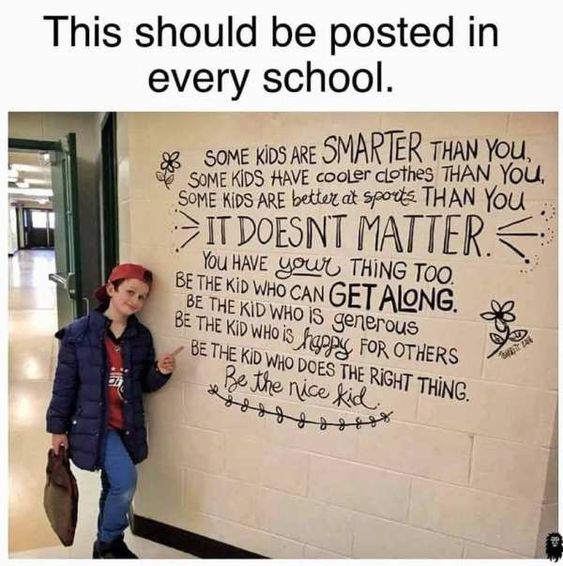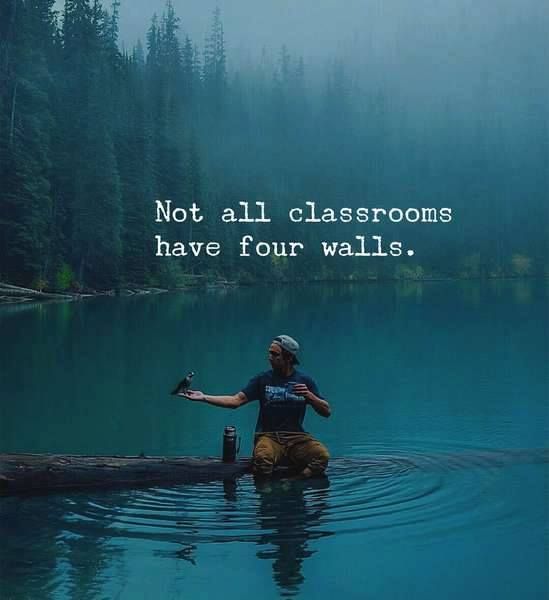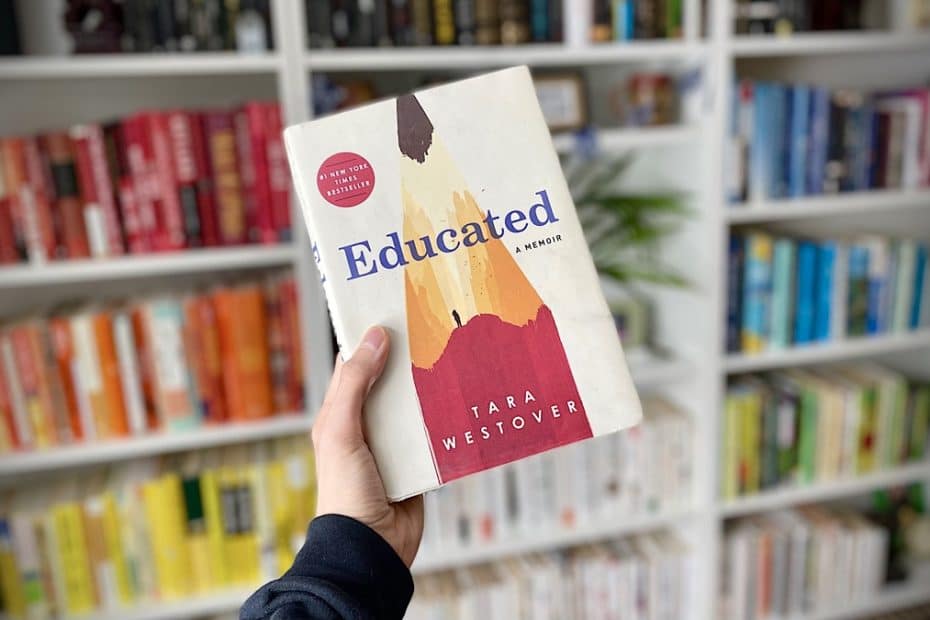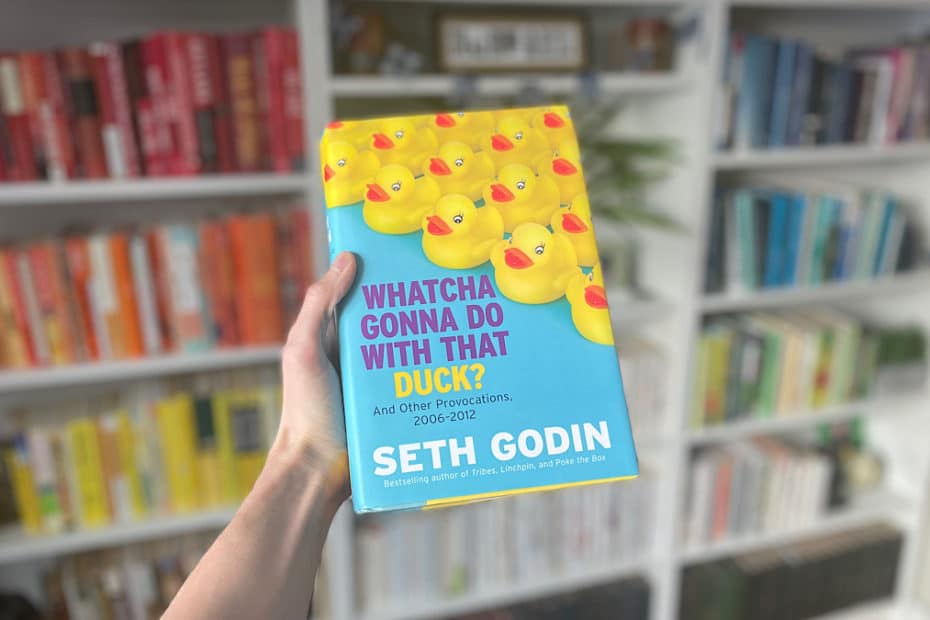“The job of the teacher is to create the conditions for the student to explore their incompetence long enough to learn something useful.”
Seth Godin | Read Matt’s Blog on this quote ➜
“In class, I only spoke when I could be an articulate defender of black people. I didn’t use the classroom to ask questions. I didn’t use the classroom to make ungrounded claims. There was too much at stake to ask questions, to be dumb, to be a curious student, in front of a room of white folk who assumed all black folk were intellectually less than. For the first time in my life, the classroom scared me. And when I was scared, I ran to cakes, because cakes felt safe, private, and celebratory. Cakes never fought back.”
Kiese Laymon, Heavy (Page 123)
“We pretend that so many courses, so many credits, so many hours in a classroom, so many books read add up to an education. The same is true of research, on which we now spend billions of dollars annually. We seem immensely satisfied with the outer husk of the enterprise—the number of dollars spent, the size of laboratories, the number of people involved, the fine projects outlined, the number of publications. Why do we grasp so desperately at externals? Partly because we are more superficial than we would like to admit. Perhaps partly because we are too lazy or too preoccupied to go to the heart of the problem. But also because it is easier to organize the external aspects of things. The mercurial spirit of great teaching and great scholarship cannot be organized, rationalized, delegated or processed. The formalities and externals can.”
John W. Gardner, Self-Renewal (Page 82)
“Nothing is more vital to the renewal of an organization (or society) than the system by which able people are nurtured and moved into positions where they can make their contribution. In an organization this implies effective recruitment and a concern for the growth of the individual that extends from the earliest training stages through the later phases of executive development. For a society it implies the correction of social and economic conditions that blight and smother talent in childhood; a deeply rooted tradition—going far beyond formal schooling—of the full development of individual potentialities; and the existence of social mobility such that talent from any segment of the population may move freely into significant roles in the society.”
John W. Gardner, Self-Renewal (Page 76)
“All too often we are giving our young people cut flowers when we should be teaching them to grow their own plants. We are stuffing their heads with the products of earlier innovation rather than teaching them to innovate. We think of the mind as a storehouse to be filled when we should be thinking of it as an instrument to be used.”
John W. Gardner, Self-Renewal (Page 21)
“It is standard practice in many schools to punish children for tantrums, spacing out, or aggressive outbursts—all of which are often symptoms of traumatic stress. When that happens, the school, instead of offering a safe haven, becomes yet another traumatic trigger. Angry confrontations and punishment can at best temporarily halt unacceptable behaviors, but since the underlying alarm system and stress hormones are not laid to rest, they are certain to erupt again at the next provocation.”
Bessel van der Kolk, The Body Keeps The Score (Page 355) | ★ Featured on this book list.
“More than anything else, being able to feel safe with other people defines mental health; safe connections are fundamental to meaningful and satisfying lives. The critical challenge in a classroom setting is to foster reciprocity: truly hearing and being heard; really seeing and being seen by other people. We try to teach everyone in a school community—office staff, principals, bus drivers, teachers, and cafeteria workers—to recognize and understand the effects of trauma on children and to focus on the importance of fostering safety, predictability, and being known and seen. We make certain that the children are greeted by name every morning and that teachers make face-to-face contact with each and every one of them. Just as in our workshops, group work, and theater programs, we always start the day with check-ins: taking the time to share what’s on everybody’s mind.”
Bessel van der Kolk, The Body Keeps The Score (Page 354) | ★ Featured on this book list.
“We receive three educations, one from our parents, one from our school masters, and one from the world. The third contradicts all that the first two teach us.”
Baron De Montesquieu, The Daily Laws (Page 51)
“A degree on a wall means you’re educated as much as shoes on your feet mean you’re walking. It’s a start, but hardly sufficient. Just as you can walk plenty well without shoes, you don’t need to step into a classroom to understand the basic, fundamental reality of nature and of our proper role in it.”
Ryan Holiday, The Daily Stoic (Page 92)
13 Poignant Tara Westover Quotes from Educated
Excerpt: From one of the most acclaimed books of our time, these 13 Tara Westover quotes from Educated are poignant, powerful, and well worth the read.
Read More »13 Poignant Tara Westover Quotes from Educated
John Dewey Quote on Education and How The Process and The Goal Are One And The Same
“I believe finally, that education must be conceived as a continuing reconstruction of experience; that the process and the goal of education are one and the same thing.”
John Dewey, Educated
Beyond the Quote (Day 390)
Becoming educated and getting a degree are two different goals. What most of us have been taught to aspire to isn’t education—it’s accreditation. We’re taught that what’s most important isn’t what you learn along the way, but what paper you receive at the end—the one that says you’ve been “educated” by this College or that University. Which isn’t exactly unreasonable as those educational institutions are supposed to represent a certain standard of education. But, at the end of the day, after all of the “accreditations” have been handed out, what matters most isn’t the paper in and of itself—it’s the person behind the paper.
Read More »John Dewey Quote on Education and How The Process and The Goal Are One And The Same“The seed of curiosity had been planted; it needed nothing more than time and boredom to grow. Sometimes, when I was stripping copper from a radiator or throwing the five hundredth chunk of steel into the bin, I’d find myself imagining the classrooms where Tyler was spending his days. My interest grew more acute with every deadening hour in the junkyard, until one day I had a bizarre thought: that I should enroll in the public school.”
Tara Westover, Educated (Page 60)
Seth Godin Quote on Learning and How School Can Get In The Way Of Our Education
“As soon as we associate reading a book with taking a test, we’ve missed the point.”
Seth Godin, Whatcha Gonna Do With That Duck?
Beyond the Quote (Day 384)
Forcing yourself to learn is like trying to force the last of the ketchup out of the ketchup bottle. You can shake, squeeze, tap, and torture the bottle all you’d like, you simply won’t be able to get all of it out when in a rush. A lot of the ketchup will be stuck throughout the container and will only come out with time. This is why you flip the bottle upside down when you put it back away—so that gravity will move it down for the next time. Learning works the same way.
Read More »Seth Godin Quote on Learning and How School Can Get In The Way Of Our Education“Each second we live in a new and unique moment of the universe, a moment that never was before and will never be again. And what do we teach our children in school? We teach them that two and two make four, and that Paris is the capital of France. When will we also teach them what they are? We should say to each of them: Do you know what you are? You are a marvel. You are unique. In all of the world there is no other child exactly like you. In the millions of years that have passed there has never been another child like you… You may become a Shakespeare, a Michelangelo, a Beethoven. You have the capacity for anything. Yes, you are a marvel. And when you grow up, can you then harm another who is like you, a marvel? You must cherish one another. You must work—we must all work—to make this world worthy of its children.”
Pablo Casals, Joys and Sorrows
30 Quotes Celebrating Teachers—The Caretakers Of Our Future
Excerpt: This list of 30 Quotes for Teachers is about uplifting (and celebrating) those remarkable individuals who have shaped (and will continue to shape) our world—present and future. Enjoy!
Read More »30 Quotes Celebrating Teachers—The Caretakers Of Our Future
“If the primary purpose of school was education, the Internet should obsolete it. But school is mainly about credentialing.”
Naval Ravikant, Medium
Robert Kiyosaki Quote on The Importance Of Learning In Today’s Fast-Changing World
“In today’s fast-changing world, it’s not so much what you know anymore that counts, because often what you know is old. It is how fast you learn. That skill is priceless.”
Robert Kiyosaki, Rich Dad Poor Dad (Page 212)
Beyond the Quote (57/365)
And to that point, even more important than the speed in which you learn is whether or not you are actually still learning. The world is changing at an incredible pace and as Kiyosaki points out, more often than not, what you know from what you’ve been taught is likely outdated and old. Thankfully, with the internet and Google, we don’t have to worry about memorizing new material or about having access the latest ideas—they are readily available to us with a couple of quick thumb taps. But with that access and organization still comes responsibility on our part.
Read More »Robert Kiyosaki Quote on The Importance Of Learning In Today’s Fast-Changing World15 Action Inspiring Seth Godin Quotes from Whatcha Gonna Do With That Duck? (Enough Getting Them In A Row)
Excerpt: This is a massive 608 page book that’s packed with insight. Our 15 quotes from Whatcha Gonna Do with That Duck? highlight some of the best.
Read More »15 Action Inspiring Seth Godin Quotes from Whatcha Gonna Do With That Duck? (Enough Getting Them In A Row)




